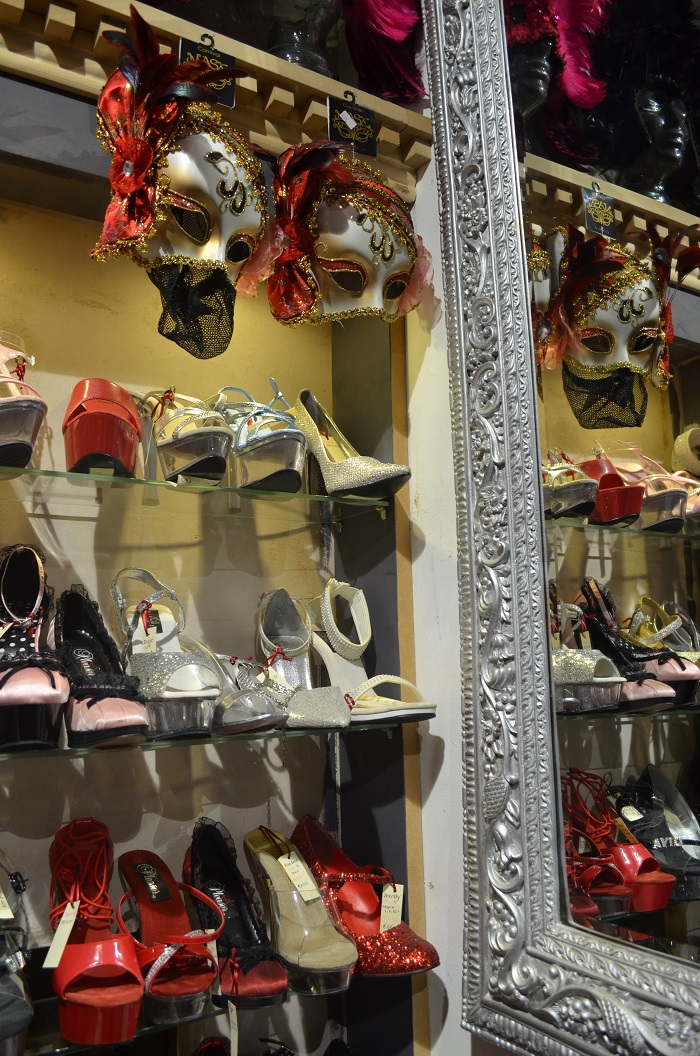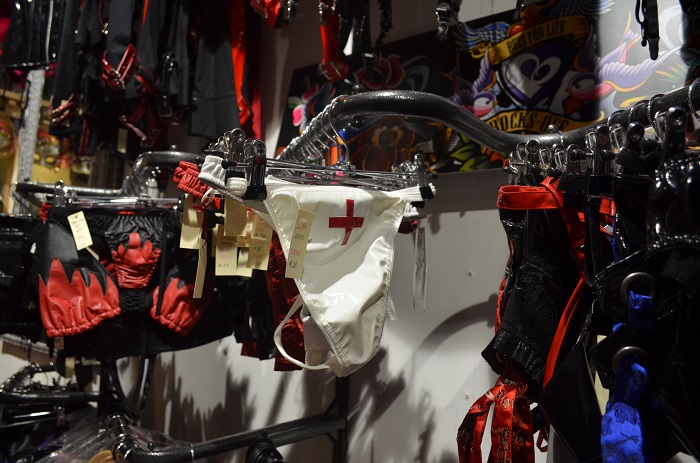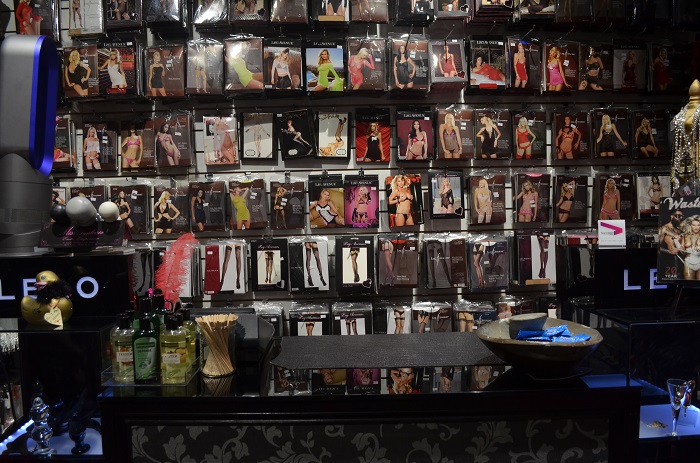Charlotte Ryan | Deputy Features Editor
I never got the “birds and the bees” talk. For me the metaphorical stork was no more than a semi-psychotic animal that dropped babies in through windows and the only thing I planned on finding in a cabbage patch was, well, cabbage. My parents favoured silence in educating me on sex. So, when on a parish-organised trip to Paris, their eight year old daughter having spotted her first sex shop asked for a condom for her Barbie their shock was justified. “At least Barbie’s being safe,” they said and I believe this was the first instance of sex positivity in my young life.
Sex positivity encourages people to embrace their sexuality on their own terms and without fear of judgement or shame
The sex positive movement is relatively new in comparison to its mother movement, feminism, yet remarkable for its simplicity of purpose. With a focus on education, safety and consent at its core, sex positivity encourages people to embrace their sexuality on their own terms and without fear of judgement or shame. This does not mean that solely those who are sexually active can be sex positive; indeed there are a great many celibate sex positive people. Seeing sex and sexuality as a natural component of our humanity, the sex positivity movement considers sexuality an overwhelmingly healthy force, regardless of how that sexuality is interpreted. In recent years, the sex-positive movement has slowly become a part of other movements, for example, take a look at the adult shop that joined the Green Movement. This shows that sex positivity isn’t solely being held to sex, but for those who are open about their sexuality its no longer a condemnation for them. Sex workers are also being embraced for their openness and willingness to help people fulfil their sexual fantasies. Erotica blogs such as takehereasy are also allowing women to reclaim their sexuality. As sexologist and activist Carol Queen says, it is a “radical affirmation that we each grow our own passions on a different medium, that instead of having two or three or even half a dozen sexual orientations, we should be thinking in terms of millions.”

The progressive tenets of the movement would appear directly opposite the morally repressive and religion-centric sexual landscape of Ireland’s recent past. In a country that allowed the presumed moral compass of the society to sexually repress and shame its followers, sexual empowerment was taboo, particularly for women. Pressed into being non-sexual beings ideally preoccupied with creating a family and maintaining a virtuous demeanour, finding pleasure in sex was largely discouraged by the predominantly Catholic society. Sex was a wifely duty, not a gratifying pursuit and the Church was intent on dispelling any belief to the contrary with “religious laundries” set up to punish women for their sexual misdeeds. It wasn’t long before being confident in your sexuality became synonymous with licentiousness and ungodliness.
Under the all seeing eye of parish priests and prattling neighbours, access to information about sex and sexuality was almost non-existent. My mother recalls there being only two places for a woman to obtain reliable information about sex: the Well Woman Centre and the Irish Family Planning Association. While the Well Woman Centre focused on safer sex, the latter was steeped heavily in the influence of the Church, intent on endorsing the husband-wife-and-a-dozen-kids brand of Irish family. With the seminal sex guidebook, ‘The Joy of Sex’ by Alan Comfort banned in Ireland in 1974 any opportunity to view sex as a fun and satisfying pursuit was quashed. For the curious among them, the only way to turn was towards the sometimes insightful but mostly ridiculous Cosmopolitan sex columns. Once the Irish Family Planning Association got its hands on 25 precious copies of ‘The Joy of Sex’ those eager to see what they were missing cleared out the miniscule stock. Just after it was banned again.
While in some political and cultural debates we are firmly last in the race, taking into account the sexual repression our parents endured it is evident how progressive Ireland has become. “I’m constantly surprised at how sex positive Irish people are,” says Sarah Ryan, resident blogger at TheSexShop.ie. “There is still a stigma surrounding it, but people are starting to shrug it off, which is great.” The vast and varied assortment of sex manuals, adult boutiques and video blogs, in particular Laci Green’s long running Youtube series on sex positivity, have aided the pervasion of sex positivity in Ireland although there is a ways to go yet.
What preteen kid hasn’t blushed in embarrassed delight at the very mention of the Kama Sutra and the untold secrets of its opulent pages?
Despite Ireland having undergone a sort of sexual awakening in the last few decades there are cultures far more sophisticated in their appreciation of sex and sexuality, the shadows of which we have grown up in. What preteen kid hasn’t blushed in embarrassed delight at the very mention of the Kama Sutra and the untold secrets of its opulent pages? Even in youth one could discern the reverence it prescribed to sex, the ritual-like illustrations so far removed from the scenes that played out on flip phones smuggled into classes and leered over by pubescent boys. The relaxed attitude of the French to sex is bordering on cultural myth, with countless handbooks written on “How to Have Sex like a French Woman” flying off the shelves year after year. In Europe sex is such a comfortable presence they don’t even black out the windows of their sex shops.
Even with these enviable attitudes surrounding us, the most outdated facet of our sexual culture is the sense of judgement and shame towards a sexually confident woman that persists even through these permutations in society. The socially institutionalised lie that women are not inherently sexual haunts each new development on the path to equality of the sexes, as well as the sense of embarrassment for what is essentially a human impulse. While men as a whole have been free and even encouraged to boast about their sexual conquests for decades, the experiences of women were shushed by often disapproving peers.
Even today, a woman can be as sexually adventurous as she desires … provided she’s in a committed relationship. Engaging in as casual a sex life as many men do is still leads to more than a few raised eyebrows from men and women alike. Women aren’t supposed to like that, let alone pursue it! Given that women cannot always rely on the sexual guidance of other women, social cues from sexually positive women in the media have come to be relied upon.

If our generation has a one-up on the previous ones it’s that despite our society being hyper sexualised we are lucky to have as many role models embodying sex positivity in their own ways. Popular culture is often dismissed as vulgar and distinct from highbrow intellectualism but the fact of the matter is that it has helped raise our generation like it has no other before and our lives are thus rooted in it.
It is for this reason that empowered women in media like Beyoncé and Nicki Minaj are so essential in promoting sex positivity. They present two vastly different takes on the movement. Beyoncé spent years crafting each individual persona – artist, businesswoman, wife, sexual being, mother, political activist, feminist icon – before honing them into a complete whole. She is wholesome and stable in her sexuality, an image most women can find themselves in. Minaj on the other hand played the male-dominated rap industry at its own game; instead of capitalising on her good looks and evident sexuality she bared her teeth and subverted what it meant to be a female rapper by singing about sex and power with as much confidence as her male peers. Both interpretations have come under fire and for the same reason: people confuse their manifest sexuality as sex.
When I see a sex shop I don’t see just sex; I see fun and enjoyment and vitality and this is what we should hope to see in the Ireland of the future. If sex positivity is to have one purpose in our society I would hope that it’s to strip away the residual shame inherited from previous generations and reorient sexuality as the most human and diverse of characteristics. If being able to happily embrace our sexuality takes a sexually aware Barbie doll or quoting Beyoncé as a personal mantra, so be it.
Correction: 12.40, October 13, 2014
An earlier version of this article incorrectly stated that the Irish Family Planning Association had connections with the Catholic Church in Ireland only and did not provide the same level of advice on safer sex as the Well Woman Centre. The IFPA was established in 1969 in response to the State ban on contraception and has since then been a leading advocate for the advancement of sexual and reproductive health and rights in Ireland, including accurate, honest and evidence-based information on safer sex.
Readers of The University Times can avail of a 10% discount on purchases at TheSexShop.ie with the discount code “universitytimes”.
Photos by Sinéad Baker for The University Times







